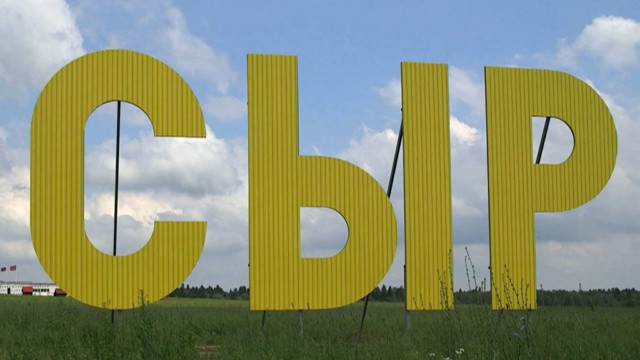Leaders from the BRICS countries, Brazil, Russia, India, China and South Africa, open their annual summit Sunday.
Their focus: the global economy.
However, each member is also dealing with economic challenges at home.
CGTN’s Aljosa Milenkovic has more from Russia, which has been hit with heavy sanctions from the West.
When Russian president Vladimir Putin imposed counter sanctions three years ago on some of Western agriculture products, Oleg decided to sell his small, software company, apartment and all his belongings to start this business.
“Russia made a U-turn in its development,” said Oleg Syrota, owner of Russian Parmesan. “It went in a different direction. It became the country I was dreaming about when I was much younger. This is amazing when your dreams are becoming reality, and I feel lucky that I’m living in this country.”
In the beginning, Syrota produced only two kilograms of cheese per day; now it is 330, with plans for further dramatic expansion.
In Moscow, there are six shops that sell Syrota’s cheese. Demand is two to three times higher than he can produce.
One of the ways Russians are battling sanctions is economic patriotism. It is not just about starting domestic production of things that weren’t produced here before.
It is also about buying everything that has the label MADE IN RUSSIA. This is the way Russians support those bold entrepreneurs like Syrota.
But Oleg is just one example of how sanctions are affecting Russian economy.
Back in 2014, Aeroflot’s low-cost airliner, Dobrolet, went bankrupt after the EU sanctions were imposed on it for its alleged role in the Crimea crisis.
Instead of hundreds of people ending up jobless in the street, just months after, Aeroflot management successfully started a new low-cost airliner, Pobeda.
“Pobeda has delivered a net margin, a very important net margin of three billion rubles in the second full year of the operation, so in 2016. And retained the pace of growth in 2016 of over 36%,” said Giorgio Callegari, Deputy General Director of Aeroflot.
Back in “Russian Parmesan”, Oleg said that he is praying every day for sanctions to last as long as possible, because, as he said, they do have a very positive effect on Russian economy.
It’s a claim that even analysts are supporting.
“The sanctions hit Russia almost simultaneously with a fall in oil prices,” said Ilya Prelevski of Moscow’s Economic Expert Group. “And, according to our estimates, the effects of the dropped oil prices were almost four times as high as from the sanctions. So, when we talk about stabilization of the Russian economy, yes indeed it is stabilizing, we have seen the growth, we have seen exchange rates that are stabilizing.”
 CGTN America
CGTN America
